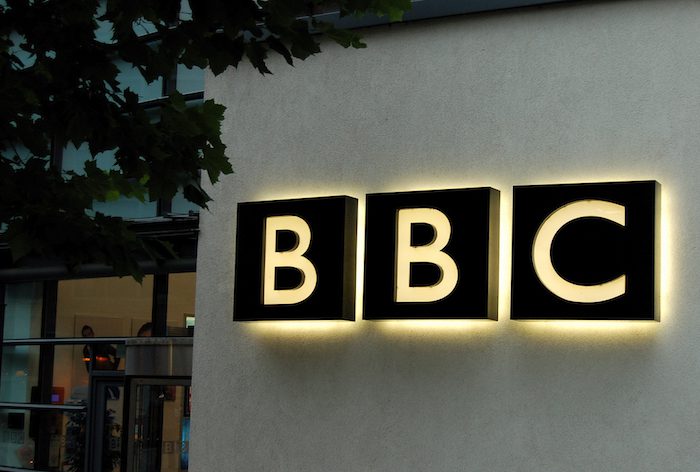
The BBC’s highest-paid presenter, Gary Lineker, will soon be back in action after being briefly suspended for what the broadcaster described as a breach of its impartiality guidelines.
The former soccer player’s tweet on March 7 described the wording of the new government policy on immigration as language “not dissimilar to that used by Germany in the 30s.” It triggered attacks by Conservative Members of Parliament, intense national debate, and a crisis at the corporation.
The BBC’s flagship TV soccer review program, Match of the Day, was aired without presenters or contributors over the weekend amid calls for the resignation of its director general, Tim Davie. The BBC gave up on finding substitute presenters after other pundits stood down in solidarity.
Lineker refused to retract his tweet. After weekend talks, BBC management reached a deal, obliging him to observe the corporation’s editorial guidelines while it conducts a social media usage review.
There is no huge influx. We take far fewer refugees than other major European countries. This is just an immeasurably cruel policy directed at the most vulnerable people in language that is not dissimilar to that used by Germany in the 30s, and I’m out of order?
— Gary Lineker 💙💛 (@GaryLineker) March 7, 2023
Described by some as a “humiliating climbdown,” the deal aimed to help the crisis blow over quickly. But it did not.
Conservative party deputy chairman Lee Anderson claimed that Gary Lineker had proved he was bigger than the BBC itself, creating a precedent for a social media “free for all” for those working for the BBC on non-journalistic contracts.
The crisis has highlighted many unresolved questions about the place of legacy media organizations — largely broadcasters and newspapers — in the fast-changing digital information space. It also raises questions about the role of journalism in the age of social media.
During discussions around Lineker’s social media conduct, media professionals have frequently referred to the distinction between news and current affairs and other BBC output — and the difference between journalists and other contributors. This distinction, once quite rigid, is increasingly blurred.
Some high-achieving BBC staff journalists were offered more lucrative freelance contracts in the 1980s and 1990s by BBC management who did not want to lose them to commercial rivals. This prompted a government inquiry into the nature of the practice.
Meanwhile, growing celebrity culture forced the BBC to offer generous freelance deals to attract top talent. This triggered resentment among staff on more modest salaries and resulted in a wave of public criticism.
Freelance journalists still had to abide by the BBC’s strict guidelines on impartiality, fairness, and accuracy. But other non-staff contributors had more room for maneuvering, depending on their contracts — the wording of which has always been shrouded in secrecy.
This discretionary nature of contractual arrangements has led to confusion and controversy. Many members of the public do not differentiate between a BBC journalist and a commentator, interviewee, pundit, or studio guest. They are all a BBC voice. But, as pointed out by former head of BBC News, James Harding, impartiality is key in maintaining the quality of public discourse and fighting growing polarization.
The former director of BBC policy, Dame Patricia Hodgson, described the threat of such departures from impartiality as “culture wars.” But can this level of adherence to editorial standards be required from all actors, musicians, scientists, or sport pundits appearing on the BBC without thwarting the principle of free speech?
The BBC’s guidelines on social media were updated only two years ago. Now, post-Lineker, they already seem obsolete, and the BBC is reviewing them again. The BBC’s requirement of impartiality from all contributors who are “primarily associated with the BBC” can be challenged — and successfully so — as shown by Lineker.
When criticized by BBC news journalists in September 2022 over earlier controversial political tweets, Lineker was backed by BBC management. One of the journalists was even censured for challenging the presenter and had to apologize.
The Lineker crisis, however short-lived, reflects how hard it is for organizations like the BBC to keep up with the world of social media, which has not been kind to journalism, either.
In a media landscape where anyone with an internet connection has access to large audiences and mainstream publishers and broadcasters and their journalists are no longer the gatekeepers of information, the definition of who or what is “doing” journalism has become blurred.
Competition is intense, revenues have fallen heavily, and many news organizations have found it hard to survive. The idea of journalism appears to have been subsumed under the more general efforts of “content creation.” This has put a great deal of pressure on the sharp distinction once created by the BBC between news and current affairs and other content. Anyone can today call themselves a journalist — whether a “citizen journalist” or otherwise.
Meanwhile, people with large social media followings and significant reach, like Lineker, can enjoy the benefits of contract escape clause that do not oblige them to behave like journalists. It seems that journalism has transcended its vocational and institutional identity and is badly in need of a new definition.
Marek Bekerman is program leader in MA international journalism at the UK’s University of Salford. This article is republished from The Conversation under a Creative Commons license.![]()